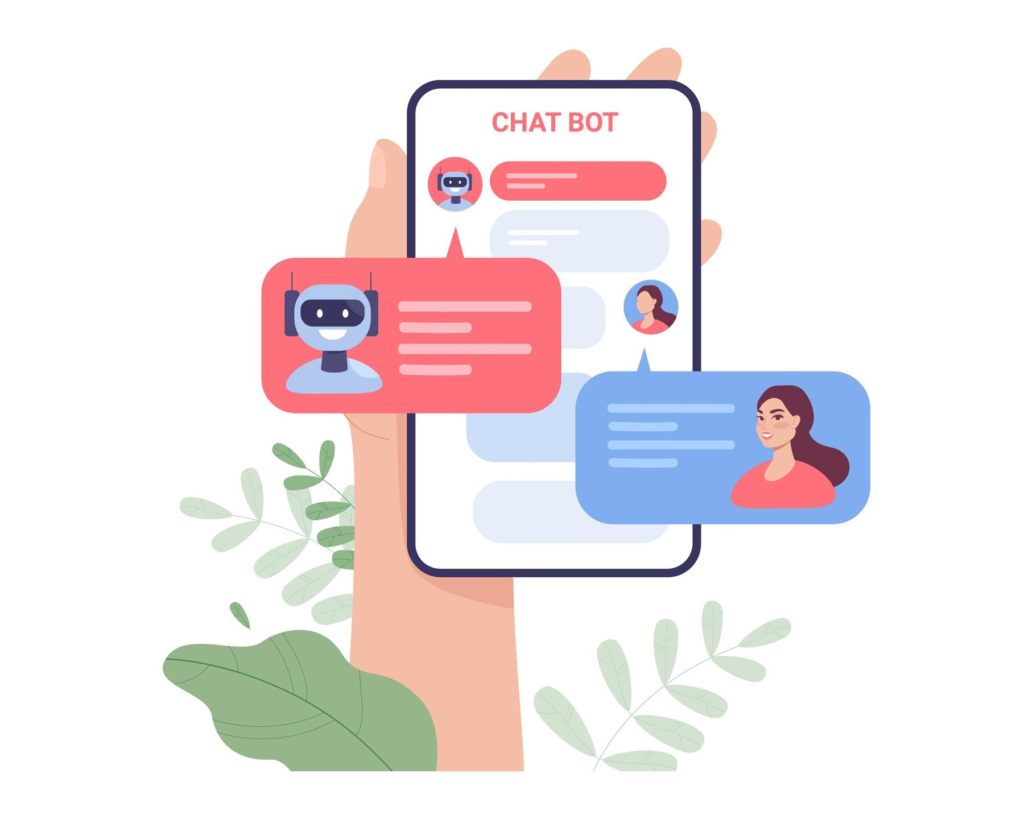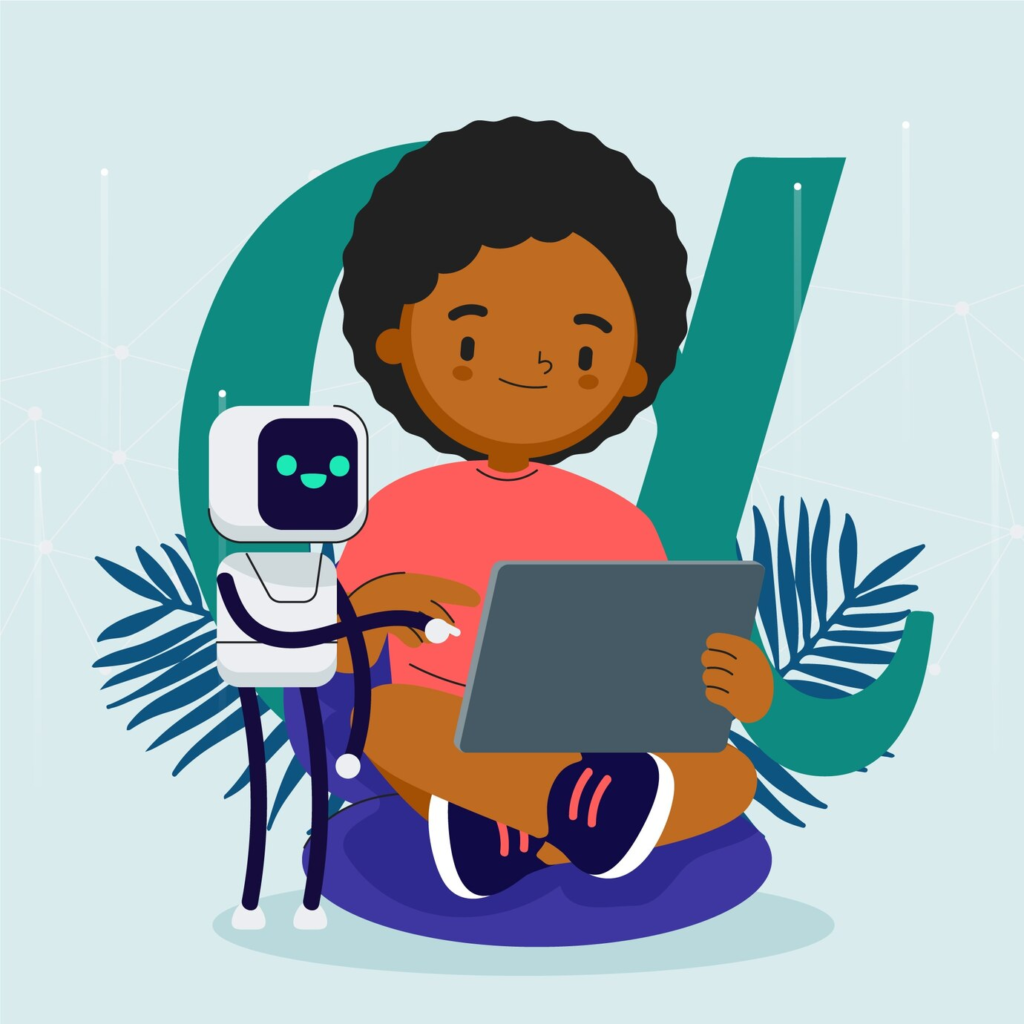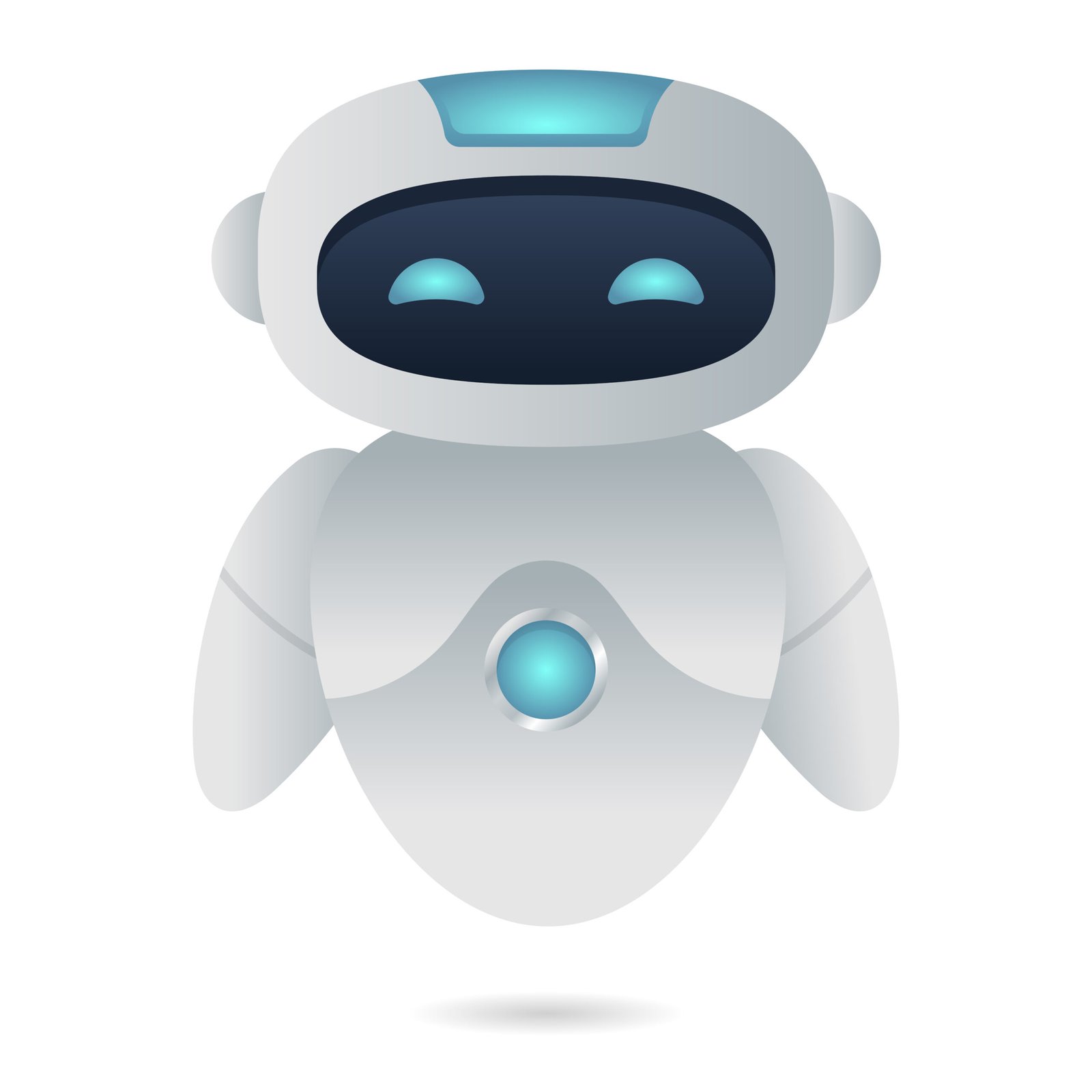Table of Contents
- Introduction to AI-Powered Chatbots
- Benefits of Using Chatbots in B2B Marketing
- Enhancing Customer Personalization with Chatbots
- Streamlining Lead Generation and Qualification
- Case Studies: Successful Implementations of Chatbots
- Overcoming Challenges in Implementation
- The Role of Chatbots in the Future of B2B Marketing
- Best Practices for Using AI-Powered Chatbots Effectively
- Conclusion: The Future is Here
Introduction to AI-Powered Chatbots
AI-powered chatbots represent a significant advancement in the field of artificial intelligence, designed to engage users in conversations and provide responses that are contextually relevant and meaningful. These systems utilize natural language processing (NLP) to interpret user input and generate appropriate dialogue, facilitating a seamless interaction between businesses and potential clients. The emergence of AI technology has allowed chatbots to evolve from basic rule-based frameworks into complex conversational agents capable of self-learning and improving over time.
The functionality of AI chatbots goes beyond merely providing automated responses. They can assist in various capacities within B2B marketing strategies, such as lead generation, customer support, and personalized marketing engagement. By understanding user intent and context through advanced algorithms, these chatbots enhance the user experience, thereby increasing customer satisfaction and engagement. The deployment of AI chatbots enables businesses to respond quickly to inquiries, handle multiple interactions simultaneously, and gather valuable analytics that inform marketing decisions.
As the demand for efficient, real-time customer service escalates, the popularity of AI-powered chatbots continues to grow. They are an essential tool for businesses looking to improve operational efficiency and boost customer interactions. The ability to provide 24/7 support eliminates barriers related to time zones and availability, making them invaluable in a global marketplace. Furthermore, integration with customer relationship management (CRM) systems allows chatbots to deliver tailored experiences based on customer data, presenting opportunities for enhanced engagement and conversion rates. Overall, the significance of AI-powered chatbots in B2B marketing strategies cannot be overstated, as they transform how businesses communicate and connect with their audience.
Benefits of Using Chatbots in B2B Marketing
The integration of AI-powered chatbots into B2B marketing is revolutionizing the way businesses engage with their clients and manage interactions. One of the primary advantages of utilizing chatbots is the significant improvement in customer engagement. By providing instant responses to inquiries, chatbots ensure that potential clients receive timely information, ultimately driving interest and facilitating the decision-making process.
Furthermore, chatbots offer 24/7 customer support, enabling businesses to assist customers outside of traditional office hours. This continuous availability not only enhances customer satisfaction but also establishes a reliable source for information and assistance. For instance, with an AI chatbot, a client can resolve an issue or ask questions at any time, increasing the likelihood of a positive outcome.
Another compelling benefit is the capability of chatbots to handle multiple inquiries simultaneously. Unlike human representatives, who can manage only one conversation at a time, chatbots can interact with numerous users concurrently. This scalability not only enhances efficiency but also ensures that businesses can cater to a larger volume of inquiries without sacrificing response quality.
Additionally, AI-driven chatbots contribute significantly to lead generation. By engaging visitors on a website and qualifying leads through interactive conversations, chatbots can gather essential information needed to nurture prospects effectively. Statistics illustrate that businesses employing chatbots have witnessed up to a 30% increase in lead conversion rates, showcasing their potential to drive sales.
Cost-effectiveness is yet another crucial advantage. By automating routine tasks and inquiries, chatbots reduce the workload on human staff, allowing them to devote their efforts to more complex and high-value activities. This reduction in operational costs makes chatbots an attractive investment for B2B companies seeking to maximize their marketing effectiveness while optimizing resource allocation.
Enhancing Customer Personalization with Chatbots

The evolution of artificial intelligence has brought about a significant transformation in the realm of B2B marketing, particularly through the implementation of AI-powered chatbots. These advanced digital tools are adept at collecting and analyzing customer data, enabling businesses to engage in personalized interactions that cater to individual preferences and needs. By integrating user profiling techniques and machine learning algorithms, chatbots can create a detailed understanding of customer behavior, thereby personalizing responses effectively.
Through the accumulation of data from various customer interactions, chatbots develop comprehensive user profiles that include insights into past purchases, preferences, and engagement patterns. This profiling allows businesses to tailor their communication, ensuring that each engagement is relevant and timely. For instance, if a customer frequently inquires about specific products or services, the chatbot can proactively offer tailored suggestions and exclusive promotions that align with those interests. This personalized approach not only enhances customer experience but also fosters loyalty within B2B relationships, as clients feel valued and understood.
Employing machine learning further enriches the chatbot’s ability to adapt and improve over time. By continuously analyzing interaction data, chatbots enhance their algorithms, allowing them to provide increasingly sophisticated responses. This cycle of learning means that the chatbots can predict customer needs with greater accuracy, ultimately streamlining the customer journey and facilitating a more efficient sales process. As businesses leverage AI chatbots, they are able to shift from a one-size-fits-all communication approach to one that is highly personalized, leading to increased customer satisfaction and retention.
In conclusion, the use of AI-powered chatbots in B2B marketing significantly enhances customer personalization by utilizing advanced data collection and analysis techniques. This evolution not only improves communication but also drives loyalty, establishing strong connections between businesses and their clients.
Streamlining Lead Generation and Qualification
In the fast-paced realm of B2B marketing, AI-powered chatbots have emerged as a pivotal tool for enhancing lead generation and qualification processes. These intelligent systems are designed to engage with potential clients in real-time, offering instant responses to inquiries as they arise. By initiating conversations, chatbots are successful in collecting crucial information and understanding customer requirements, which is essential for identifying quality leads.
The chatbots employ natural language processing (NLP) to engage users in meaningful dialogues, allowing them to filter potential clients based on their responses. As they handle frequently asked questions and routine inquiries, they can ascertain a lead’s readiness to purchase while simultaneously gathering pertinent details that inform marketing strategies. This capability significantly reduces the workload on human sales representatives, allowing them to concentrate their efforts on leads with a higher likelihood of conversion.
Moreover, integrating chatbots with Customer Relationship Management (CRM) systems streamlines the data collection process further. This integration ensures that every interaction is logged, and leads are scored based on their behavior and feedback during chatbot exchanges. Consequently, teams can quickly access comprehensive lead profiles that highlight the most promising prospects. The systematic qualification of leads not only saves time but enhances the overall effectiveness of marketing campaigns. Marketing teams can strategically allocate resources where they are most likely to yield returns, which is vital for pursuing high-quality leads in a competitive environment.
Ultimately, the deployment of AI-powered chatbots in lead generation and qualification fundamentally transforms how marketing teams operate. By automating initial interactions and refining lead insights, these innovative tools empower professionals to focus their efforts on fostering relationships with high-potential clients, thereby enhancing overall business efficiency and performance.
Case Studies: Successful Implementations of Chatbots
AI-powered chatbots have emerged as transformative tools within B2B marketing, providing companies with innovative solutions to enhance customer engagement and streamline operations. One notable example is HubSpot, a leading inbound marketing platform, which integrated a chatbot into its website. The primary challenge for HubSpot was managing a high volume of inquiries without compromising response quality. By implementing a chatbot programmed to handle frequently asked questions and schedule demos, HubSpot saw a significant reduction in response times, leading to a 30% increase in lead generation within six months.
Another illuminating case is that of Drift, a prominent conversational marketing platform. Drift faced the challenge of converting website visitors into qualified sales leads efficiently. To address this, they deployed an AI chatbot designed to initiate proactive conversations with site visitors. This chatbot not only engaged them but also qualified leads based on their responses. The results were impressive; Drift reported a 50% increase in conversions within the first quarter after the chatbot launch, demonstrating the effectiveness of AI in transforming traditional lead generation processes.
Likewise, Autodesk, known for its design software solutions, encountered difficulties in providing reliable customer support for its B2B users. They implemented a chatbot that could assist users with common technical issues and product questions. This integration not only alleviated the burden on their support team but also increased customer satisfaction rates by 20%. The chatbot’s ability to deliver 24/7 support ensured that customers received timely assistance, further solidifying Autodesk’s position in the competitive landscape.
These case studies exemplify the profound impact that AI-powered chatbots can have on B2B marketing. By addressing specific challenges and implementing strategic solutions, companies can achieve remarkable results, highlighting the essential role chatbots play in modern digital marketing strategies.
Overcoming Challenges in Implementation

The integration of AI-powered chatbots into B2B marketing strategies presents several challenges that organizations need to navigate effectively. Understanding and addressing these challenges is crucial for achieving successful implementation. One prominent technical hurdle involves the integration of chatbots with existing CRM systems and marketing platforms. Companies must ensure that the chatbot is compatible with their current technology stack, which may require time, resources, and expert knowledge. Overcoming these technical barriers can be daunting, especially for smaller organizations lacking the necessary infrastructure.
Another challenge involves employee resistance to adopting new technologies. Employees may fear that AI chatbots could replace their roles or disrupt their established workflows. To alleviate these concerns, organizations should communicate the benefits of AI chatbots, such as improved efficiency and the ability to handle repetitive tasks. Engaging employees through training sessions and demonstrating how chatbots augment their roles can help foster a more positive attitude towards these innovations.
Ensuring data privacy remains a top priority while implementing AI chatbots. Given the sensitivity of customer interactions, businesses must comply with data protection regulations, such as GDPR. This involves implementing robust security measures to safeguard user information and continually monitoring data usage. Transparency in how customer data is collected and processed helps build trust, making clients more comfortable interacting with the chatbot.
Lastly, continuous training for chatbots is essential in enhancing their effectiveness over time. Initial setup may provide a functional chatbot, but periodic updates and improvements based on user interactions are necessary for optimal performance. Analyzing chatbot conversations and feedback can guide adjustments, ensuring the chatbot evolves and meets the dynamic needs of customers and the organization.
The Role of Chatbots in the Future of B2B Marketing
The integration of AI-powered chatbots into B2B marketing is poised to evolve significantly in the coming years, driven by technological advancements and changing customer expectations. One emerging trend is the incorporation of voice assistants alongside traditional text-based chatbots. As voice recognition technology continues to improve, enterprises may leverage voice-activated chatbots to provide seamless customer interactions. This innovation could drastically enhance user experience by allowing professionals to obtain information or answers to their queries in a hands-free manner, facilitating multitasking and improving efficiency.
Moreover, the use of AI-driven analytics is set to revolutionize how businesses understand their customers. By harnessing the vast amounts of data generated through chatbot interactions, companies can gain in-depth insights into customer behavior, preferences, and pain points. This will enable marketers to tailor their strategies more effectively and deliver personalized communication, thereby increasing the likelihood of converting leads into clients. Enhanced data analytics can also predict customer needs, allowing businesses to engage proactively rather than reactively, establishing stronger relationships with their clientele.
Furthermore, the potential for greater automation in customer interactions cannot be overlooked. As AI technology continues to advance, chatbots will likely become more sophisticated and capable of handling complex queries autonomously. This automation will free human agents to focus on higher-level tasks that require empathy and strategic thinking, while chatbots efficiently manage routine inquiries. Consequently, businesses can achieve higher operational efficiency and cost reduction, leading to improved productivity in the marketing sphere.
Ultimately, the trajectory of AI-powered chatbots in B2B marketing points towards a future that is increasingly data-driven, personalized, and automated, aligning closely with industry shifts toward enhanced customer centricity.
Best Practices for Using AI-Powered Chatbots Effectively
To leverage the potential of AI-powered chatbots in B2B marketing, it is essential for businesses to adhere to several best practices that ensure effective implementation and operation. A well-defined strategy can significantly enhance the interaction between the chatbot and the target audience, thereby driving engagement and conversion rates.
First and foremost, organizations should begin by defining clear objectives for the chatbot’s deployment. This includes identifying the specific problems the chatbot will solve, whether it’s answering common customer inquiries, guiding prospective clients through a sales funnel, or providing 24/7 support. By establishing these objectives, businesses can better tailor the chatbot’s functionalities to meet the needs of both customers and the organization. These objectives should be revisited regularly to ensure that the chatbot evolves with the changing requirements of the business environment.
Maintaining a human touch in interactions is another critical practice. Despite the advanced capabilities of AI, customers often appreciate a human-like interaction, which fosters trust and loyalty. Thus, it is advisable to program the chatbot with a conversational tone, utilizing informal language where appropriate and incorporating empathetic responses. This helps bridge the gap between automated and personalized communication. Businesses should also ensure that the chatbot can interface smoothly with human agents when needed, providing a seamless transition that enhances the user experience.
Furthermore, continuous performance analysis is vital to optimize the chatbot’s effectiveness over time. By monitoring performance metrics such as customer satisfaction scores, resolution rates, and user engagement levels, businesses can assess how well the chatbot meets its objectives. These insights can inform necessary adjustments and improvements, ensuring that the chatbot remains a valuable asset in the marketing lineup. With these best practices in place, AI-powered chatbots can significantly enhance B2B marketing efforts by improving customer experiences and streamlining operations.
Conclusion: The Future is Here
In recent years, the adoption of AI-powered chatbots in B2B marketing has shifted the landscape of customer engagement and interaction. These advanced tools successfully bridge the gap between businesses and their clients by providing efficient, real-time communication tailored to individual needs. As discussed, the utilization of chatbots enhances lead generation, fosters personalized experiences, and improves overall service delivery. The ability of these intelligent systems to analyze vast sets of data allows companies to optimize their marketing strategies and streamline customer interactions, setting a new standard in the industry.
Moreover, the integration of AI chatbots into customer service processes not only optimizes resource allocation but also enables businesses to address queries and concerns promptly. This capability is critical in establishing trust and loyalty among clients, providing a competitive edge in an increasingly crowded marketplace. The profound impact of these technologies is evident, as organizations that leverage chatbot solutions report improved customer satisfaction and higher conversion rates.
As we look towards the future, it is clear that AI-powered chatbots are no longer an optional enhancement but a fundamental component of successful B2B marketing strategies. Companies must recognize the importance of adopting these tools to remain relevant and competitive in a rapidly evolving landscape. By embracing chatbot technology, businesses can ensure they are not left behind in the digital transformation journey.
For organizations considering the integration of chatbots into their marketing operations, now is the time to act. Explore available chatbot solutions that align with your business objectives and begin the transition into this new era of communication. By doing so, you can position your business at the forefront of innovation and significantly enhance your marketing efforts.





